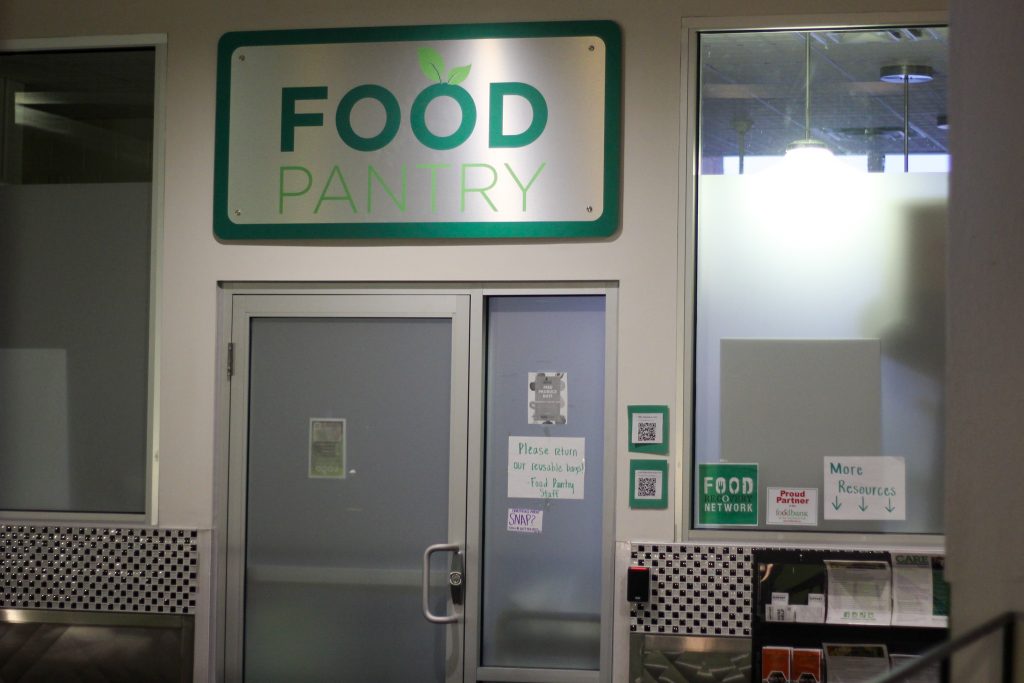New York state will provide extended aid to those relying on food benefits, Governor Kathy Hochul announced.
The extended federal budget for the Supplemental Nutrition Assistance Program (SNAP) — a government-funded food benefit agency that aids low-income families and individuals — was recently reduced due to the decline of COVID-19. According to the Department of Agriculture’s Food and Nutrition Service (FNS) website, the extra benefits were a “temporary strategy authorized by Congress,” meaning they were set to end in unison with the shutdown. This February is the last month extended benefits will be provided by the federal government.
Hochul’s extended aid would benefit all SNAP recipients through the month of February as a way of “protecting New Yorkers who are struggling to feed themselves and their families,” according to a statement released by Hochul. Each household supported by SNAP will receive a supplement of at least $95 — including households that are regularly given under $95 per month and those receiving the maximum monthly amount.
Daniel Tietz is the commissioner of the New York State Office of Temporary and Disability Assistance (OTDA) — the office in charge of regulating SNAP benefits in New York state. Tietz said the extended benefits throughout the COVID-19 pandemic have helped, and suggested SNAP receivers seek alternate forms of aid in the coming months.
“The additional food benefits provided throughout the public health crisis have helped alleviate much uncertainty among New Yorkers who were unsure about being able to put food on the table,” Tietz said. “It’s important that affected households seek out other available assistance that may help with offsetting other household costs.”
Local emergency food service programs have been impacted by the decrease in SNAP benefits, and expect to be further affected by Hochul’s plan for February.
Les Aylesworth, director of the Community Hunger Outreach Warehouse (CHOW) at the Broome County Council of Churches, said the warehouse saw “an uptick in need” once benefits — including extended SNAP assistance — were discontinued. Aylesworth advised individuals in need of food assistance to utilize CHOW’s services.
“The proposed benefits will certainly help people through February, but that’s obviously only temporary,” Aylesworth wrote in an email. “One of the things people can do is shop at the store we opened in Binghamton called the Greater Good Grocery, where folks who use SNAP can double up on their purchases to help stretch those benefits.”
According to Aylesworth, one in seven individuals and one in four children in Broome County are “food insecure.” He further claimed this number of individuals could fill the University’s Events Center over five times.
Lori Accardi, the executive director of Catholic Charities in Broome County, described a similar experience, with the organization currently helping over 3,500 people each month, half of which are children and seniors.
Accardi described a decrease in the amount of individuals relying on Catholic Charities during the pandemic, with an increase in deliveries. Since the decline of the pandemic, the organization has been helping more people from Broome County — which has seen an increased homeless population.
“We have an affordable housing crisis in our community, as well as an issue with shelter beds being filled, leading to many people living in local hotels where it is difficult to prepare food,” Accardi wrote in an email. “That means that serving them requires additional expense to provide single servings, microwaveable food, items that don’t need to be heated, etc.”
Lucy Mandel, a junior double-majoring in history and philosophy, politics and law, expressed worry toward Hochul’s solution being temporary.
“I think its good that [Hochul’s plan] is being extended, but clearly it’s not a long-term solution to the problem,” Mandel said. “I don’t know how they would fix that, but clearly something else needs to be implemented to help people that can’t afford food anymore. Especially, being in college, there are plenty of kids who can’t afford food and there’s not enough resources to help [students].”
Hochul said households outside of NYC can expect to receive the extra state-provided benefits by Feb. 24, and households within New York City by Feb. 28.
Silas Wieland, a junior double-majoring in mathematics and physics, had similar concerns for Hochul’s plan and a possible shortage of benefits in the coming months.
“My initial thought is, because of inflation and the lingering effects of COVID-19, one month isn’t really enough grace period to fully help people on SNAP and who need SNAP benefits.” Wieland said. “I think that it should be extended over a much longer period, maybe six months to a year. That would make it a lot more equal, and maybe we could look for more long-term improvements for SNAP to help raise people up past where inflation is.”



